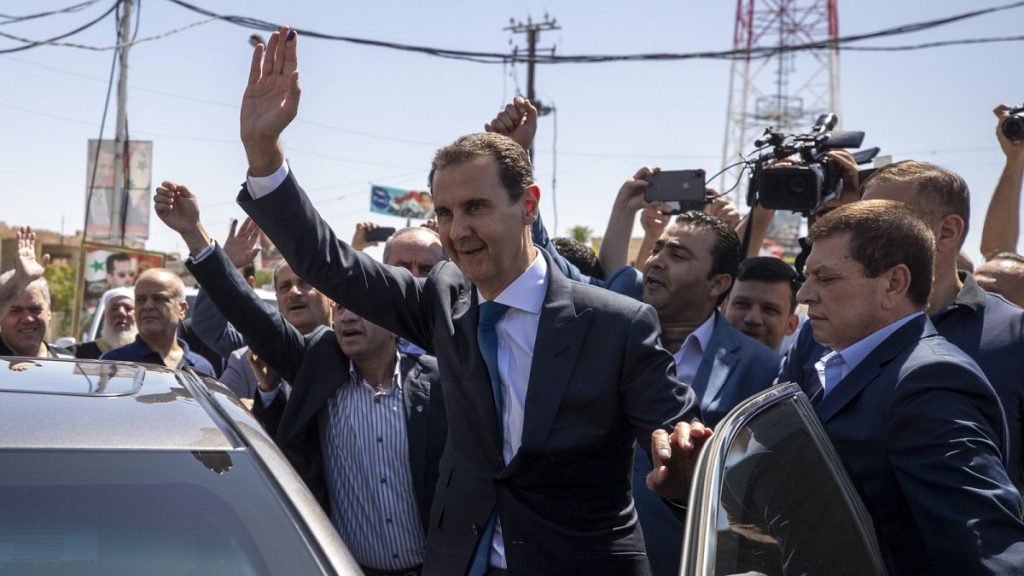The sudden fall of the al-Assad regime in Syria has unearthed horrifying evidence of widespread atrocities, including mass graves and chilling remnants of torture within the regime’s notorious prison system. This grim discovery has spurred international calls for the preservation of evidence and the pursuit of justice against Bashar al-Assad and his officials. While celebrations mark the end of his oppressive rule, the focus now shifts to accountability for the crimes committed over decades, including torture, rape, mass executions, enforced disappearances, and chemical attacks. The Syrian Network for Human Rights estimates that at least 15,000 Syrians have died due to torture since the civil war began in 2011.
Numerous legal and political hurdles complicate the path to justice. The International Criminal Court (ICC), the primary international body for prosecuting such crimes, lacks jurisdiction over Syria due to the country not being a signatory to the Rome Statute. Further, Russia, a staunch ally of al-Assad, holds veto power in the UN Security Council and would likely block any attempt to refer the case to the ICC, as they did a decade ago. This leaves the pursuit of justice reliant on other avenues, primarily national courts within and outside Syria exercising universal jurisdiction. Human rights organizations urge Syria’s new de facto leadership to ratify the Rome Statute and grant the ICC retroactive jurisdiction, but the viability of this option remains uncertain given the complex political landscape.
While the ideal scenario involves fair trials within Syria, adhering to international standards and ensuring the safety of witnesses and victims, the current situation presents significant challenges. The dominant rebel group, Hayat Tahrir al-Sham (HTS), is designated a terrorist organization by the UN, raising concerns about their commitment to due process. While HTS has vowed to pursue regime officials and called for their extradition, they have also spoken of amnesty for conscripted soldiers, creating a potentially conflicting approach to justice. Moreover, the prospect of extraditing al-Assad from Russia, his current place of exile, appears highly unlikely given the strong political ties between the two countries. Iran, harboring other regime officials, is similarly unlikely to cooperate with extradition requests.
Despite these formidable obstacles, human rights experts remain optimistic about the eventual accountability of al-Assad and his accomplices. The rapid and unforeseen collapse of the regime underscores the potential for swift geopolitical shifts that could alter the current calculus protecting al-Assad. The strength of the Russia-Syria alliance, while currently a barrier to prosecution, might weaken in the future due to evolving international relations. This leaves open the possibility that Russia may eventually find it less advantageous to shield al-Assad, potentially paving the way for his prosecution.
Universal jurisdiction offers a viable alternative path to justice, allowing national courts in countries outside Syria to prosecute individuals for crimes against humanity, war crimes, and torture, regardless of where the crimes were committed. Several European countries, including Austria, France, Germany, Norway, Sweden, and the US, have already initiated cases against Syrian regime officials, with some achieving successful prosecutions. Notably, a German court convicted a former high-ranking Syrian official of crimes against humanity in 2020, marking a significant milestone in holding the Assad regime accountable. A French court also issued arrest warrants for al-Assad, his brother, and two other officials in 2023. While universal jurisdiction offers a practical mechanism for pursuing justice, experts emphasize that it should be a supplementary approach, with Syrian-led processes taking precedence whenever possible.
The preservation of evidence is paramount for successful prosecutions. Throughout the Assad regime’s reign, international organizations and Syrian civil society groups meticulously documented human rights abuses, often with the help of courageous whistleblowers. The “Caesar” photos, leaked by a defecting Syrian military police officer, provide harrowing visual evidence of systematic torture and have played a crucial role in legal proceedings. The UN’s International, Impartial and Independent Mechanism (IIIM) has been tasked with collecting and preserving evidence for future criminal proceedings, but access to crucial sites within Syria remains a challenge. The chaotic aftermath of the regime’s fall has raised concerns about evidence being destroyed, lost, or manipulated, highlighting the urgent need for secure access and preservation efforts. International cooperation and support for Syrian-led initiatives are crucial to ensure that the truth is revealed and perpetrators are brought to justice.














